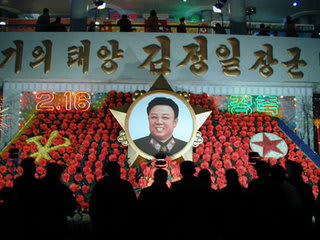 About the Center and the Haneda Memorial Hall
About the Center and the Haneda Memorial Hall
Center for Eurasian Cultural Studies was established in 2004 as a result of reorganizing the former Institute for Inner Asian Studies founded in 1966. It is located in the Haneda Memorial Hall (13, Omiya Minamitajiri-cho, Kita-ku, Kyoto) which was built in commemoration of the late Professor Dr. Toru Haneda (1882-1955), who pioneered a new field of academic research in Central and Northern Asian history and languages and made great efforts to the progress of study and education in those fields, thanks to the donations from the Mishima Kaiun Foundation and Takeda Pharmaceutical Company Limited. The unique two-story building that emulates the architecture of Islamic seminaries is the work of Kyoto University Professor Yomoya Masuda (1914-1981).

I. Organization
The Center is managed by the Committee consisting of some ten members and has about forty researchers concurrently serving as faculty staffs in and out of Kyoto University.
II. Fields of study and research methods
The center is committed to the development of multidisciplinary research related with history, language, religion in a wide range of Central Eurasia and its vicinities, laying weigh on philological inquiry that has been cultivated since the era of the former Institute for Inner Asian Studies. Additionally, research based on fieldwork has also been actively carried out.

1. Historical studies
Under the established source-based history since the former Institute for Inner Asian Studies, much importance is given to the thorough examination of historical sources written in various languages such as Iranian, Semitic, or Altaic languages, in addition to Chinese materials. The Center ensures the organic linkage among individual research in the area in order to dynamically study on human history in Central Eurasia and its vicinities.
2. Linguistic studies
Studies on languages in written historical sources from Central and Western Asia are vigorously being pursued in the Center. Subjects of research include Iranian, Indian, Tocharian, Uighur, Tangut, Mongolian, Tibetan, and ancient languages in Western Asia such as Hittite and Sumerian. In addition, investigation of Endangered Languages along with their recording and documentation is one of the research issues of the Center.
3. Religious studies
As well as the major religions such as Islam, Buddhism, Christianity and Taoism, people in Eurasia have embraced various minor religions including Manichaeism. The function of these religions in human life in the area is comprehensively investigated mainly based on the exploration of Old language documents.
III. Publication of research result
Semiannual meetings on the Eurasian studies, which have begun in 1980, are usually held in July and December. The 72nd meeting was held in 2014. Additionally, special academic meetings and lectures are occasionally held with scholars of Eurasian studies from home and abroad.
IV. Educational activities
Courses on Old Eurasian languages are occasionally held at the Center in order to train junior researchers.

















